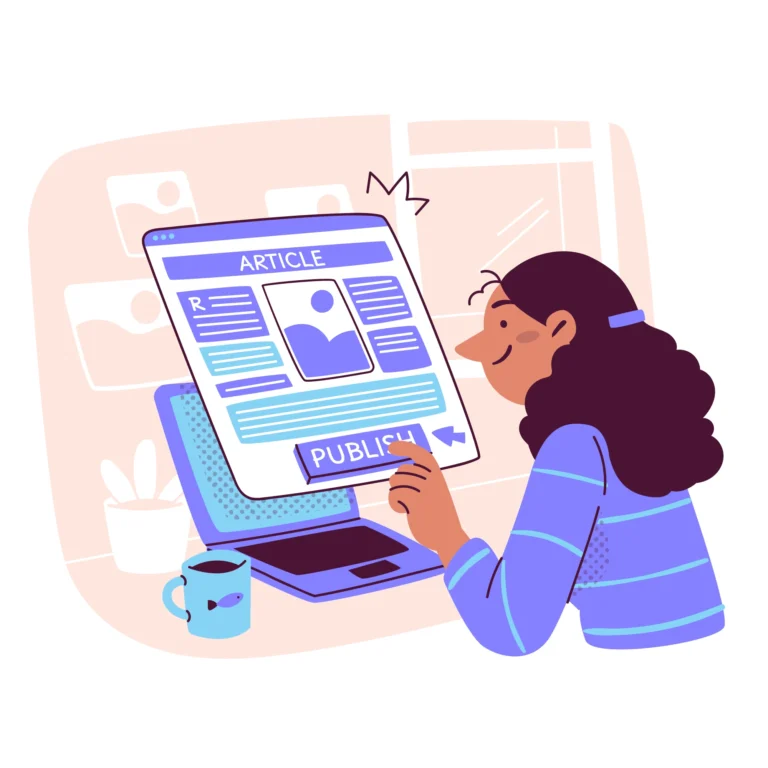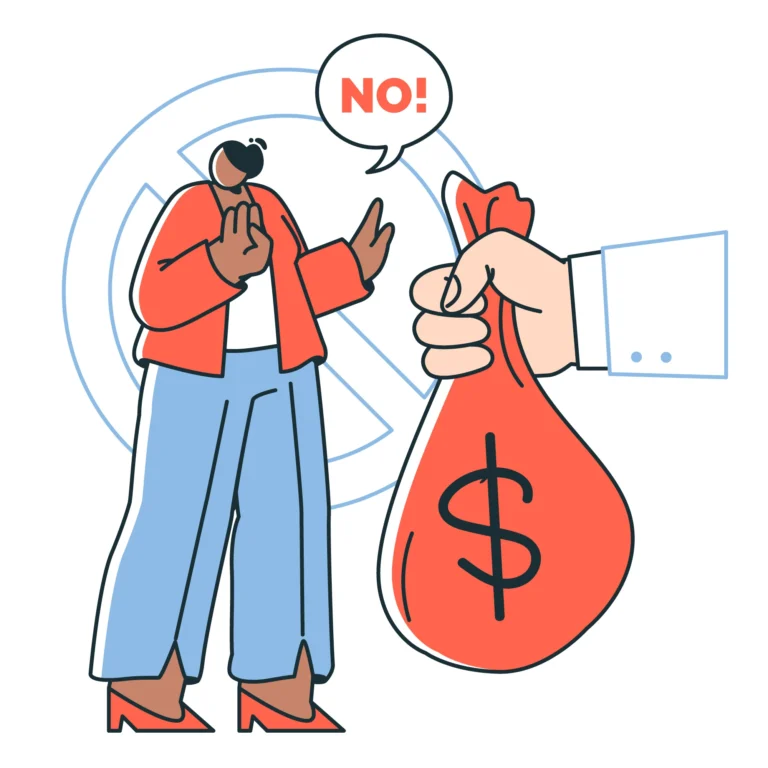Introduction: Interviews Don’t Reward Perfection — They Reward Preparation
You’ve crafted your resume. Tailored your cover letter. Got the interview invitation. So far, so good.
But when the conversation starts, even the most qualified candidates can undermine their chances with small missteps — awkward phrasing, overused clichés, or missed opportunities to show value.
In 2025, employers aren’t just looking for experience. They’re looking for:
- Clarity
- Confidence
- Culture fit
- And most of all — how well you solve their problems
In this guide, we’ll cover 9 common interview mistakes to avoid, along with what to say instead — so you leave a lasting impression and walk out with momentum.
Because one sharp answer can change everything.
❌ Mistake #1: Giving a Generic “Tell Me About Yourself” Answer
Most candidates start interviews with a version of:
“Well, I’m a hardworking, detail-oriented professional who’s passionate about [buzzword]…”
That might sound safe, but it’s one of the most common interview mistakes to avoid — because it doesn’t say anything memorable.
Why it’s a problem:
It blends you into the crowd. You miss the chance to establish relevance and momentum from the first question.
What to say instead:
Craft a “Present–Past–Future” story that ties directly to the role:
“Currently, I’m a freelance content strategist helping SaaS brands grow with SEO-focused blogs. Before that, I worked in-house for 3 years at a B2B agency. Now I’m looking to join a team where I can contribute to long-form strategy and mentor junior writers.”
This shows clarity, confidence, and alignment — all within 30 seconds.
❌ Mistake #2: Speaking Negatively About Past Employers
You might have had a terrible boss or a toxic work culture. Still — don’t bring that into the interview.
Why it’s one of the biggest interview mistakes to avoid:
Negativity — even if justified — raises red flags. It makes hiring managers wonder if you might be the problem.
What to say instead:
Reframe honestly, but professionally:
“I’m grateful for what I learned, but I reached a point where the environment no longer aligned with how I wanted to grow — especially in areas like collaboration and feedback.”
This shows emotional maturity, self-awareness, and professionalism — without being fake.
❌ Mistake #3: Over-Explaining Weaknesses (or Being Too Vague)
You’re asked: “What’s your biggest weakness?”
You panic. You either:
- Over-apologize
- Confess something unrelated
- Say, “I’m a perfectionist,” and hope it sounds clever
Why it’s a trap:
It’s one of the top interview mistakes to avoid because it turns into either a credibility killer or a cliché.
What to say instead:
Choose a real weakness that you’re actively improving — and relate it to the role (without making it a deal-breaker).
Example:
“In the past, I sometimes over-edited my writing before sharing it, which slowed collaboration. I’ve learned to set time limits and trust team feedback earlier in the process — it’s made me faster and more open.”
That’s honest, reflective, and growth-oriented — exactly what interviewers want.
❌ Mistake #4: Not Preparing Questions — or Asking the Wrong Ones
“Do you have any questions for us?”
This is not a formality — it’s a test.
One of the worst interview mistakes to avoid is saying “No, I think you covered everything.”
Why it hurts you:
It signals lack of curiosity, preparation, and long-term interest — even if you’re enthusiastic inside.
What to say instead:
Ask questions that show insight and future focus, like:
- “What would success look like in the first 90 days for this role?”
- “What’s something you hope the next hire brings that the team’s been missing?”
- “How does your team typically handle remote collaboration and feedback?”
These show you’re serious — not just about getting hired, but about thriving once you are.
❌ Mistake #5: Overloading Answers with Irrelevant Details
You’re trying to show your experience, so you tell the whole story… every step, every detail, every team member, every tool you used…
Before you know it, it’s been 5 minutes and the interviewer has no idea what the takeaway was.
Why it’s one of the most common interview mistakes to avoid:
Interviewers don’t want your autobiography. They want clarity, structure, and impact.
What to say instead:
Use the STAR method (Situation, Task, Action, Result). Keep your answer to 1–2 minutes, max.
“Our lead designer left mid-project, and I was asked to manage the rest of the timeline. I created a revised workflow in ClickUp, aligned with the client on expectations, and we delivered one week early. That helped us secure a 3-month contract extension.”
Tight. Relevant. Measurable.

Overexplaining is one of the biggest interview mistakes to avoid—be clear, concise, and confident.
❌ Mistake #6: Underselling Your Role in Team Projects
Saying “we did this” sounds humble, but in interviews, it can backfire.
If you always say “we,” the interviewer may not understand what you specifically contributed.
Why it matters:
This is one of the subtler interview mistakes to avoid — especially if you’re trying to show leadership, initiative, or technical ownership.
What to say instead:
Show teamwork and personal contribution.
“Our team’s goal was to reduce churn. My part was to audit the onboarding emails. I rewrote the first three messages, ran an A/B test, and we saw a 17% increase in user engagement.”
Now they know you’re a team player — and a contributor.
❌ Mistake #7: Not Tailoring Your Examples to the Role
You’ve got great stories… but they don’t match the job description.
You’re applying for a strategic content role, but you spend 3 minutes talking about your internship managing social media accounts.
Why this hurts you:
One of the biggest interview mistakes to avoid is giving examples that don’t show how your experience connects directly to this role.
What to say instead:
Study the job description, pick 3–4 core responsibilities, and prep examples that align.
Before the interview, ask yourself: “What would make this person confident I could succeed in this job?”
Then choose stories that support that belief.
❌ Mistake #8: Giving Vague Salary Expectations
When asked, “What are your salary expectations?”, the worst thing you can do is say:
- “I’m open.”
- “Whatever you think is fair.”
- “I’ll take anything.”
Why it’s a major mistake:
It shows lack of research or confidence — and can cost you thousands.
What to say instead:
Be polite but clear, and base your answer on data.
“Based on my research and the responsibilities outlined, I’d expect a range of $65,000–$72,000. I’m open to discussing based on the full compensation package.”
Confident. Flexible. Informed.
Need help here? Link to 👉 Top 24 Proven Salary Negotiation Strategies That Actually Work in 2025
❌ Mistake #9: Ending Without Reaffirming Interest or Fit
You nailed the answers — but end the interview with a soft “Thanks for your time.”
That’s fine… but forgettable.
Why it’s one of the final interview mistakes to avoid:
Hiring managers often speak with 5–10 candidates. You want to leave them with clarity and enthusiasm about why you’re the one.
What to say instead:
Use your final moments to summarize your fit and express genuine interest.
“Thanks again for today. Based on everything we’ve discussed, I’m really excited about the chance to bring my experience in content systems and team communication to your growth team. Let me know if there’s anything else I can share to support the next step.”
You’re showing initiative and confidence — without sounding pushy.
Suggested Tools
- 👉 Take the Free 10-Point Career Confidence Test and Discover If You’re Ready to Grow in 2025
- 👉 Logical Tool to Compare Job Offers: 7 Powerful Ways to Choose the Right One for Your Future
- 👉 Career Clarity Quiz: Discover Your Next Right Move in 2025
- 👉 Take the Bold Salary Negotiation Readiness Quiz: Know Where You Really Stand
Suggested Reads
👉 11 Smart Remote Part-Time Job Interview Questions With Sample Answers That Instantly Impress
👉 10 Most Common Job Interview Red Flags in 2025 that Smart Candidates Never Ignore
👉 Top 24 Proven Salary Negotiation Strategies That Actually Work in 2025
👉 How to Avoid Salary Negotiation Mistakes: 12 Powerful Strategies That Work
👉 7 Essential Secrets to Crafting the Perfect Resume Structure with Winning Sections & Formatting Tips
Frequently Asked Questions (FAQs)
What are the most common interview mistakes to avoid?
Some of the most common interview mistakes to avoid include giving generic answers, speaking negatively about past employers, rambling without structure, failing to prepare tailored examples, and not asking insightful questions. These small slip-ups can hurt your chances even if you’re highly qualified.
How do I answer “Tell me about yourself” without sounding boring?
Use the Present–Past–Future method. Start with what you do now, add a quick snapshot of your background, and end with how that experience connects to the role. Keep it under 60 seconds and relevant to the job.
What if I made a mistake during the interview?
It happens! Acknowledge it briefly (if it was major), clarify if needed, and move on. What matters more is how you handle pressure and recover. Don’t dwell — redirect to your strengths.
Is it okay to talk about weaknesses in an interview?
Yes — if done right. Choose a real, non-critical weakness and explain how you’re working to improve it. Avoid clichés like “I work too hard” and never mention something that’s essential to the role.
How can I end an interview on a strong note?
Recap your fit. Reaffirm your enthusiasm. Thank the interviewer. A strong ending sounds like:
“I appreciate the time today — and I’m excited about the opportunity to bring [insert your core skill] to your team.”






